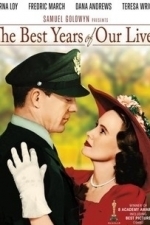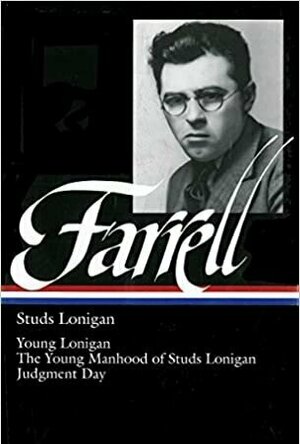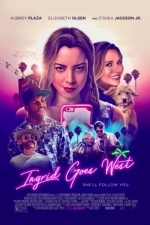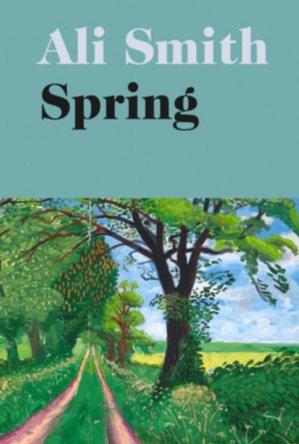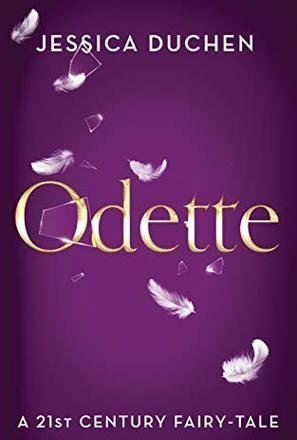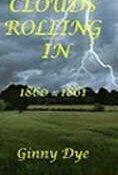Search
Search results
Jason Hall recommended The Best Years of Our Lives (1946) in Movies (curated)
Debra Granik recommended Twarz (Mug) (2018) in Movies (curated)
Sean Baker recommended Naked (1993) in Movies (curated)
Tom Wolfe recommended Studs Lonigan in Books (curated)
Sarah (7800 KP) rated Ingrid Goes West (2017) in Movies
Jul 31, 2018
Very disturbing
What worries me the most about this film is how disturbingly accurately it reflects today’s society. There is never a doubt about the realism of how the insta-celeb and the stalker-esque are depicted, and it makes for a very depressing watch. It really puts me off using certain social media.
Aubrey Plaza is a great choice, as she really knows how to do crazy stalker and she makes the film even more disturbing. My problem was the plot was a bit predictable, I didn’t think it was particularly funny and I felt the ending was a bit of a letdown and potentially not the right message to be sending? Its not a terrible film and I appreciate what it’s trying to do, it’s just not a film to watch if you need cheering up!
Aubrey Plaza is a great choice, as she really knows how to do crazy stalker and she makes the film even more disturbing. My problem was the plot was a bit predictable, I didn’t think it was particularly funny and I felt the ending was a bit of a letdown and potentially not the right message to be sending? Its not a terrible film and I appreciate what it’s trying to do, it’s just not a film to watch if you need cheering up!
Suswatibasu (1703 KP) rated Sing, Unburied, Sing in Books
Oct 3, 2017
A Toni Morrison novel updated for modern times
This is no doubt a modern day version of reading a Toni Morrison novel. From the magical realism aspect to social issues affecting African Americans, this novel is both haunting and almost poetic.
The story follows a family on their way to a prison, in which the children's white father is due to be released. The teenage boy and his three year old sister are mostly dependent on one another as well as their grandparents Pop and Mam. The mother Leonie is absent, and rather aloof in their upbringing, forcing her son, Jojo to bring up his kid sister. In between are disturbing stories featured in flashbacks and ghostly apparitions, The novel explores interracial relationships, police brutality and even post traumatic stress disorder to a degree.
While it can seem haphazard, going back and forth in time, and random narratives appearing throughout, it leaves the reader with a sense of unease and despair at the violent nature of society. A truly intriguing read.
The story follows a family on their way to a prison, in which the children's white father is due to be released. The teenage boy and his three year old sister are mostly dependent on one another as well as their grandparents Pop and Mam. The mother Leonie is absent, and rather aloof in their upbringing, forcing her son, Jojo to bring up his kid sister. In between are disturbing stories featured in flashbacks and ghostly apparitions, The novel explores interracial relationships, police brutality and even post traumatic stress disorder to a degree.
While it can seem haphazard, going back and forth in time, and random narratives appearing throughout, it leaves the reader with a sense of unease and despair at the violent nature of society. A truly intriguing read.
This is Britain now.
This book describes what it is to live in Britain in 2019. The previous two books in the seasonal quartet looked at the Brexit vote, Trump’s election, and this one seems to have a central theme of borders and immigration (although you could argue that immigration seems to have been an overarching theme so far).
There is so much going on beneath the surface in these books if you want to research and find out, but it is just a fascinating and exciting book to read just for the joy of reading it.
I loved the “What we want”, “Any time at all. Here take it. Take my face”, and “Now for 140 seconds of cutting edge realism” chapters. They reflect society today so well: how people hide behind social media and the internet to say whatever they want to without fear of any repercussions, and the violence behind what they say (both obvious and insidious).
Ali Smith is just so clever, and I love her books. I can’t wait to see what Summer will hold for us.
There is so much going on beneath the surface in these books if you want to research and find out, but it is just a fascinating and exciting book to read just for the joy of reading it.
I loved the “What we want”, “Any time at all. Here take it. Take my face”, and “Now for 140 seconds of cutting edge realism” chapters. They reflect society today so well: how people hide behind social media and the internet to say whatever they want to without fear of any repercussions, and the violence behind what they say (both obvious and insidious).
Ali Smith is just so clever, and I love her books. I can’t wait to see what Summer will hold for us.
A charming story
A lovely, magical book about a swan that crashes through Mitzi's flat window during a storm, and then at dusk turns into a young woman. This is a reworking of the Swan Princess/ Swan Lake, or rather a 'what would happen if her spell lasted for over 100 years'?
The Princess, Odette, is naive, even though she is over 100 years old (being a swan for half of your time and living in the woods on your own, will do that to a person, I suppose), and adjusting to life in the modern age is quite hard for her. She is adamant that she needs to find a man to love her to break the spell, and Mitzi just wants to protect her and help her where she can.
I really enjoyed this story, which is rich in magical realism. The contrast of old magic and modern British life, made it on the whole quite believable, really!
Many thanks to The Pigeonhole for the chance to read this story on their social platform!
The Princess, Odette, is naive, even though she is over 100 years old (being a swan for half of your time and living in the woods on your own, will do that to a person, I suppose), and adjusting to life in the modern age is quite hard for her. She is adamant that she needs to find a man to love her to break the spell, and Mitzi just wants to protect her and help her where she can.
I really enjoyed this story, which is rich in magical realism. The contrast of old magic and modern British life, made it on the whole quite believable, really!
Many thanks to The Pigeonhole for the chance to read this story on their social platform!
Phillip McSween (751 KP) rated Gran Torino (2009) in Movies
Mar 25, 2018
Original
A racist Korean War veteran has to deal with his own prejudice when a Hmong teenager tries to steal his car.
Acting: 8
Clint Eastwood comes out of the gates swinging in playing racist Walt Kowalski. I thought it was a daring role seeing as, even though the character had a strong prejudices, you were still supposed to somehow like and respect him. Clint walks that line finely and pulls the role off with that smooth ease I've seen in a number of his previous roles.
Special love to a strong supporting role from Chee Thao who plays the angry Grandma of the Hmong family. She hates Clint as much as he hates her and their chemistry makes for some hilarious scenes. She captures the role perfectly.
Beginning: 1
Characters: 10
Gran Torino features a rich array of characters with meaning and depth. Walt is a man set in his ways after the war hardened him, but you find his walls slowly tearing down as the movie progresses. He reluctantly lets in the people that he wouldn't normally and finds himself becoming closer to them than his own family. While his heart may have changed, I appreciated the fact that his mouth didn't. Walt, with his brutal honesty, always spoke what was on his mind at all times which was funny and refreshing at the same time.
Thao (Bee Vang) has his own internal struggle as he deals with getting his education while trying to take care of his family and still fit in with the men in his family. He wants to be different than his thug cousins but he's too much of a softy to stand up for himself. Thao and Walt end up on a collision course towards each other surrounded by a number of characters that have their own stories worth paying attention to.
Cinematography/Visuals: 10
A lot of scenes stuck out in my head when considering Gran Torino. From family dinners to one-off scenes with Walt and Thao, the film provides believable insight into Walt becoming closer to his "enemies" than his own family. The dinners were shot in a claustrophobic type of way. Thao's house was littered with people and you find a surrounded Walt trying to navigate his way through while steering clear of being social. The film as a whole was shot in a dark style indicative of looming danger. It's unnerving in a way, but effective at the same time.
Conflict: 10
Genre: 7
Memorability: 10
The hard dramatic shift in the film is like a gut punch, both jarring and unexpected. I appreciate when a film can change tones and still be effective. I also appreciate when films show racism from both sides of the fence. There's a refreshing sense of realism you get with Gran Torino that may be sacrificed in other films for the sake of getting a point across. In Torino, no one is innocent. No one is exempt.
I can't even count the number of one-liners that Walt provides throughout the span of the movie. My personal favorite: "Good day, puss cake." I have often considered how hilarious it would be to randomly say that to someone. There's still time...
Pace: 6
Definitely could have been improvement in the pacing department. The beginning starts off extremely slow before moving at a shaky pace. It finally levels out at about the half hour mark, but the damage had already been done for me at this point.
Plot: 10
Solid storyline from beginning to end that is both intriguing and unique. We are provided with an insight into a different culture in an endearing way that makes you smile.
Resolution: 5
Overall: 77
Gran Torino is an original film that succeeds with gritty realism and strong characters. A few tweaks, particularly a stronger ending, would have put the movie into a higher tier for me. Still a solid watch.
Acting: 8
Clint Eastwood comes out of the gates swinging in playing racist Walt Kowalski. I thought it was a daring role seeing as, even though the character had a strong prejudices, you were still supposed to somehow like and respect him. Clint walks that line finely and pulls the role off with that smooth ease I've seen in a number of his previous roles.
Special love to a strong supporting role from Chee Thao who plays the angry Grandma of the Hmong family. She hates Clint as much as he hates her and their chemistry makes for some hilarious scenes. She captures the role perfectly.
Beginning: 1
Characters: 10
Gran Torino features a rich array of characters with meaning and depth. Walt is a man set in his ways after the war hardened him, but you find his walls slowly tearing down as the movie progresses. He reluctantly lets in the people that he wouldn't normally and finds himself becoming closer to them than his own family. While his heart may have changed, I appreciated the fact that his mouth didn't. Walt, with his brutal honesty, always spoke what was on his mind at all times which was funny and refreshing at the same time.
Thao (Bee Vang) has his own internal struggle as he deals with getting his education while trying to take care of his family and still fit in with the men in his family. He wants to be different than his thug cousins but he's too much of a softy to stand up for himself. Thao and Walt end up on a collision course towards each other surrounded by a number of characters that have their own stories worth paying attention to.
Cinematography/Visuals: 10
A lot of scenes stuck out in my head when considering Gran Torino. From family dinners to one-off scenes with Walt and Thao, the film provides believable insight into Walt becoming closer to his "enemies" than his own family. The dinners were shot in a claustrophobic type of way. Thao's house was littered with people and you find a surrounded Walt trying to navigate his way through while steering clear of being social. The film as a whole was shot in a dark style indicative of looming danger. It's unnerving in a way, but effective at the same time.
Conflict: 10
Genre: 7
Memorability: 10
The hard dramatic shift in the film is like a gut punch, both jarring and unexpected. I appreciate when a film can change tones and still be effective. I also appreciate when films show racism from both sides of the fence. There's a refreshing sense of realism you get with Gran Torino that may be sacrificed in other films for the sake of getting a point across. In Torino, no one is innocent. No one is exempt.
I can't even count the number of one-liners that Walt provides throughout the span of the movie. My personal favorite: "Good day, puss cake." I have often considered how hilarious it would be to randomly say that to someone. There's still time...
Pace: 6
Definitely could have been improvement in the pacing department. The beginning starts off extremely slow before moving at a shaky pace. It finally levels out at about the half hour mark, but the damage had already been done for me at this point.
Plot: 10
Solid storyline from beginning to end that is both intriguing and unique. We are provided with an insight into a different culture in an endearing way that makes you smile.
Resolution: 5
Overall: 77
Gran Torino is an original film that succeeds with gritty realism and strong characters. A few tweaks, particularly a stronger ending, would have put the movie into a higher tier for me. Still a solid watch.
Phil Leader (619 KP) rated Storm Clouds Rolling In (Bregdan Chronicles #1) in Books
Nov 26, 2019
Describing this book makes it sound like it could be a tale of Southern romance set before the American Civil War; Carrie Cromwell is the teenage daughter of a plantation owner in Virginia and falls for the son of another plantation owner as the political and social storm of the events of the Civil War brew around them.
In reality however this is a far more complex work - yes the romance is there but it is very much overshadowed by the situation and events of the time. Firstly Carrie is not a Southern Belle happy to sit on the verandah and look after her hard working man - she wants to make something of herself and doesn't think that she will be happy running her father's plantation in later life. Secondly she has grave doubts about slavery, an institution that has become the basis of the plantation owner's very existence.
This novel then is far more an exploration of the confict the slave issue creates as well as the lack of opportunity for a bright woman to better herself in the nineteenth century.
The author does well with the slavery issue in presenting someone from the whole spectrum, from reactionary pro-slavery plantation owners to equally abhorrent abolitionlists who are in many ways just as bad. Carrie is very much undecided throughout the book and that is a good thing, we are essentially treated to a novel length essay on the causes of the civil war and the justifications for slavery that caused a lot of the friction, along with the North failing to take account of the depth of the pride of those in the South.
The characters are very well drawn, and although each more-or-less repesents one particular facet of the debate none are mere ciphers and indeed many of them evolve over time and change their outlook and opinions, not lease Carrie but also of note the slaves Rose and Moses, both young but who really grow during the course of the story. The author has necessarily put some perjorative terms for slaves in the mouths of some of her characters - for which she apologises in a brief forward - but this not only lends realism but underlines those characters attitudes towards the slaves.
The book does move at a relatively slow pace, and there are plenty of discussions around politics, society and slavery but it is quite immersive and acts to let each character become far more solid.
Overall a book I enjoyed and it provides a lot of insight into the state of America at the outbreak of war and why it happened
In reality however this is a far more complex work - yes the romance is there but it is very much overshadowed by the situation and events of the time. Firstly Carrie is not a Southern Belle happy to sit on the verandah and look after her hard working man - she wants to make something of herself and doesn't think that she will be happy running her father's plantation in later life. Secondly she has grave doubts about slavery, an institution that has become the basis of the plantation owner's very existence.
This novel then is far more an exploration of the confict the slave issue creates as well as the lack of opportunity for a bright woman to better herself in the nineteenth century.
The author does well with the slavery issue in presenting someone from the whole spectrum, from reactionary pro-slavery plantation owners to equally abhorrent abolitionlists who are in many ways just as bad. Carrie is very much undecided throughout the book and that is a good thing, we are essentially treated to a novel length essay on the causes of the civil war and the justifications for slavery that caused a lot of the friction, along with the North failing to take account of the depth of the pride of those in the South.
The characters are very well drawn, and although each more-or-less repesents one particular facet of the debate none are mere ciphers and indeed many of them evolve over time and change their outlook and opinions, not lease Carrie but also of note the slaves Rose and Moses, both young but who really grow during the course of the story. The author has necessarily put some perjorative terms for slaves in the mouths of some of her characters - for which she apologises in a brief forward - but this not only lends realism but underlines those characters attitudes towards the slaves.
The book does move at a relatively slow pace, and there are plenty of discussions around politics, society and slavery but it is quite immersive and acts to let each character become far more solid.
Overall a book I enjoyed and it provides a lot of insight into the state of America at the outbreak of war and why it happened
